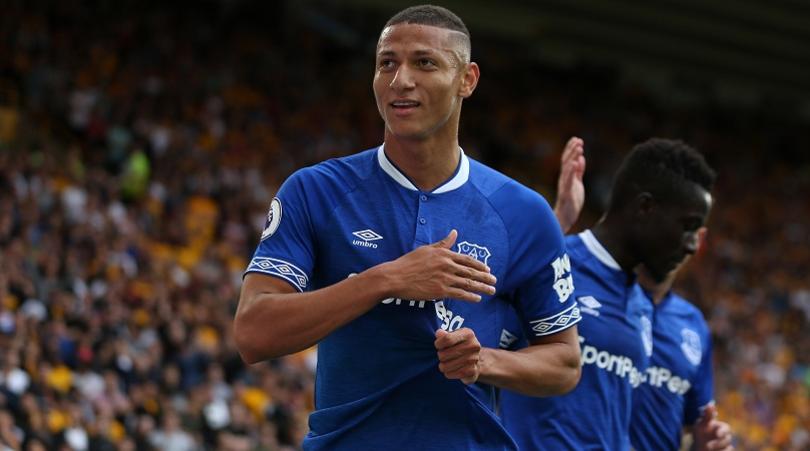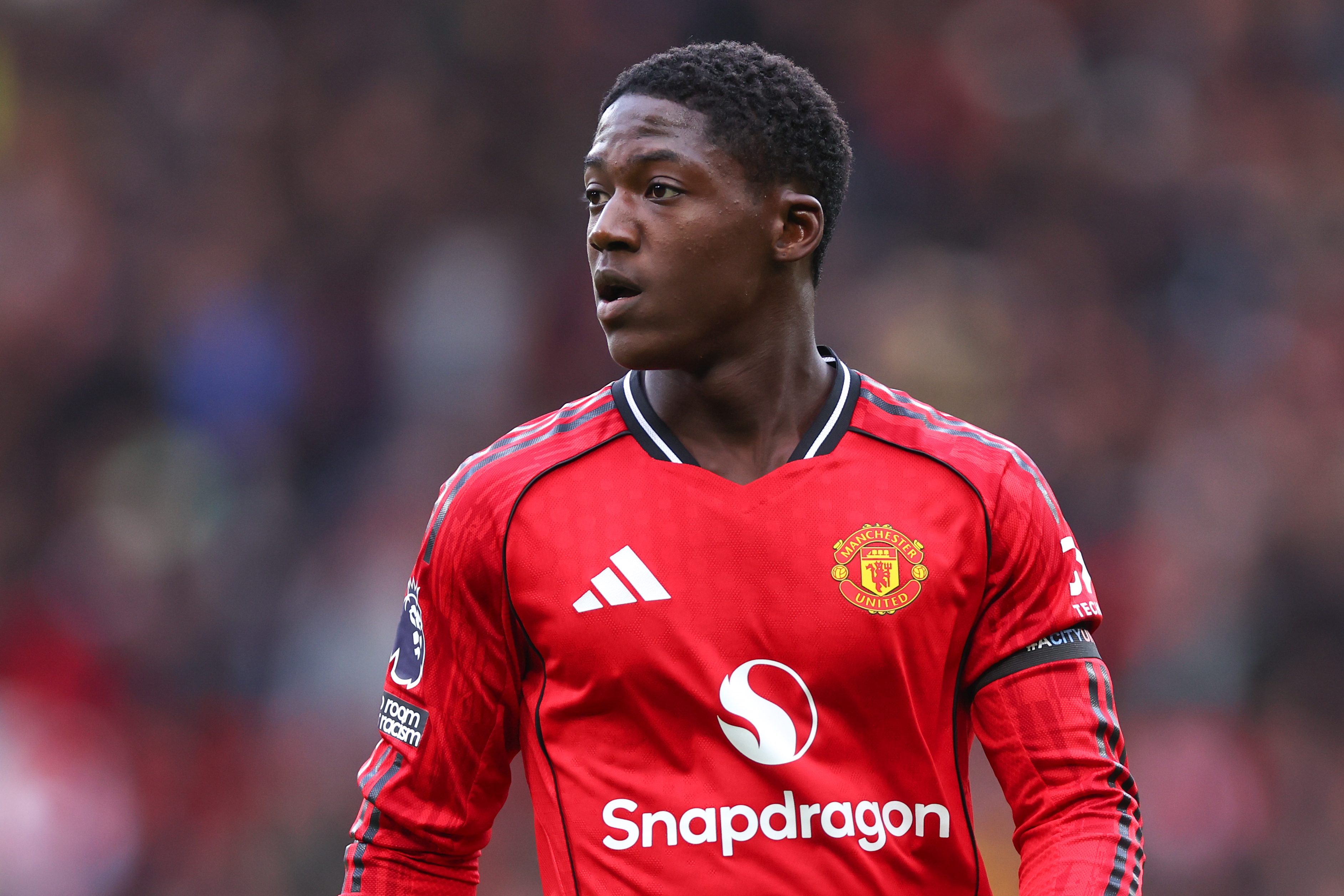Where are they now? Argentina's star-studded 2008 gold medallists
On this day in August 2008, a sublimely talented Argentina under-23 team won gold in Beijing, beating Nigeria 1-0 in the final. Turns out those kids have done all right...
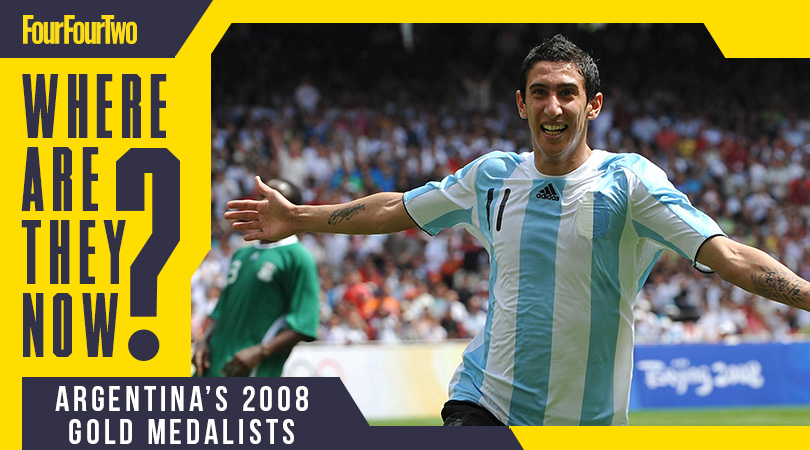
Manager: Sergio Batista
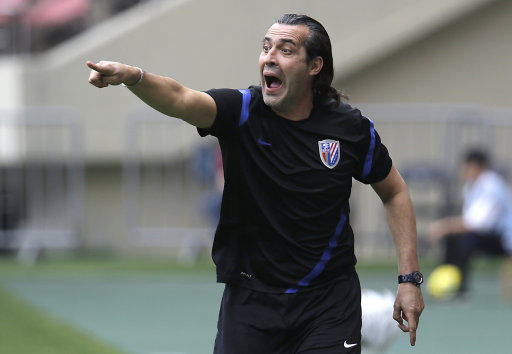
A decade since guiding Argentina to the 2008 Olympic gold medal, Batista will look back to the Beijing Games as his finest moment in the dugout.
Having started his coaching career with Bella Vista in Uruguay in 2000, the former World Cup winner returned to Argentina the following year to coach several domestic sides before joining the Argentina Football Association in 2007. Two months after winning gold, Batista linked up with his 1986 team-mate and captain Diego Maradona as part of his coaching set-up with the senior national team.
He later took charge for a year, initially on a caretaker basis, after Maradona was sacked following the 2010 World Cup. The former defensive midfielder left the post after a disappointing Copa America campaign in 2011.
Batista shifted to China for a stint with Shanghai Shenhua in May 2013 but left a year later due to the club’s financial woes. He returned in 2014 for a temporary gig after the club was rebranded, and was then appointed to the Bahrain post in May 2015.
Batista and Bahrain parted ways in May after failing to advance to the final stage of the World Cup qualifiers following a disastrous second round, where the Middle Eastern side lost five of its eight group matches. He hasn't managed since.
GK: Sergio Romero
The best features, fun and footballing quizzes, straight to your inbox every week.
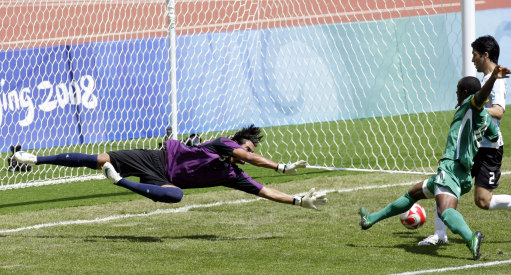
He never would have thought it back in 2008, but things really wouldn’t get much better for Romero than that Olympic gold in Beijing. Ten years on he’s represented his country at two World Cups (man of the match in the 2014 semi-final against Holland, no less) and two Copa America tournaments, but didn't win any of them, and has spent a sizeable chunk of his club career warming benches – particularly in recent years.
It had all looked so promising for the 6ft 3in shot-stopper – after Beijing he became AZ Alkmaar’s first-choice keeper for three seasons, winning the Eredivisie title in 2008/09, and later joined then-Serie B side Sampdoria in 2011.
Since 2013/14, though, he’s mustered only 20 league appearances for three clubs: Sampdoria, Monaco and Manchester United, where he still plays understudy to David de Gea, having joined English football’s most decorated side on a free transfer in 2015. A knee inury ruled him out of the 2018 World Cup and start of the new Premier League campaign.
RB: Pablo Zabaleta
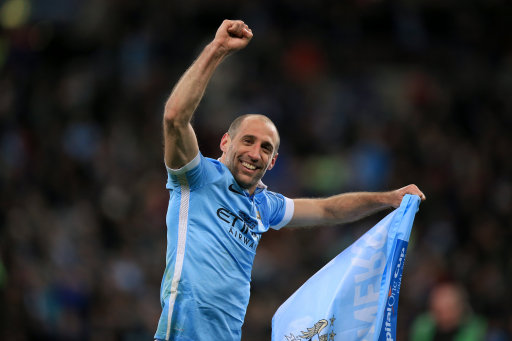
The full-back was a mainstay at Manchester City for nine years after joining in 2008, making 332 appearances for the Citizens before joining West Ham on a free transfer in 2017.
At Manchester City he was an integral part of the 2012 and 2014 title-winning squads, and was even among the goalscorers in the 3-2 victory over QPR on the madcap final day of the 2011/12 season when Roberto Mancini's team snatched the Premier League title from rivals Manchester United. He was also named the club’s player of the season in 2012/13, highlighting the impact he made on the blue half of Manchester.
On the international front, however, it hasn’t all been smooth-sailing for Zabaleta. He wasn't selected in the final squad by then head coach Diego Maradona for the 2010 World Cup, but was in the team that made it all the way to the final in 2014. He hasn't retired from international duty yet – 58 caps and counting – but wasn't part of Jorge Sampaoli's squad in 2018.
CB: Ezequiel Garay
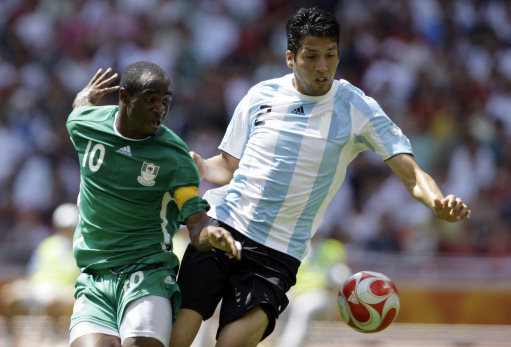
Centre-back Garay played in every match bar the group-ending dead-rubber with Serbia, helping the Argentine defence leak just two goals in six matches. Tight, but then they didn’t concede any en route to gold in 2004.
Having been plucked from Newell’s Old Boys by Racing Santander in late 2005, Garay was bought by Real Madrid the month before the Olympics but never nailed down a permanent Bernabeu berth, and in 2011 was shipped to Benfica in the Fabio Coentrao swap deal.
In 2014, the Eagles did the domestic treble and lost a second successive Europa League final. Garay was signed by Zenit St Petersburg shortly before his shootout penalty helped send Argentina to the World Cup final, where he was one of seven players who had also appeared in the 2008 Olympic decider.
Turning 32 this October, Garay was a regular fixture in the transfer gossip columns and eventually joined Valencia in 2016.
CB: Nicolas Pareja
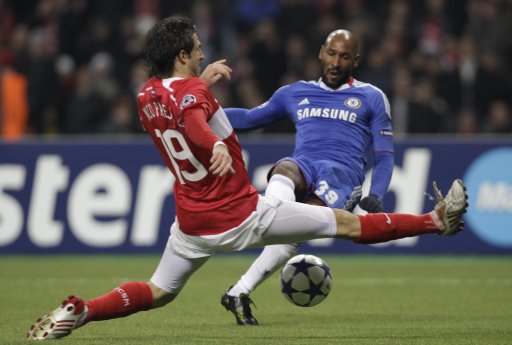
Pareja is hoping for much better fortunes at Sevilla in 2018/19, having spent much of last season sidelined with injury. The centre-back has been with the Andalusians since 2014.
Following his Olympic gold, Pareja moved on from Anderlecht in Belgium to Espanyol, before spending three years in Russia with Spartak Moscow. He returned to Spain in 2013, initially on loan, but hasn't managed to add to his single senior cap for Argentina (picked up in 2010). Sampaoli called him up for a 2018 World Cup qualifier, but Pareja didn't make it onto the pitch.
He didn’t get off to the best of starts under his former coach at Sevilla, however, getting sent off just 28 minutes into a friendly with Colombian club Santa Fe. Thankfully for him, things have improved for the 34-year-old since.
LB: Fabian Monzon
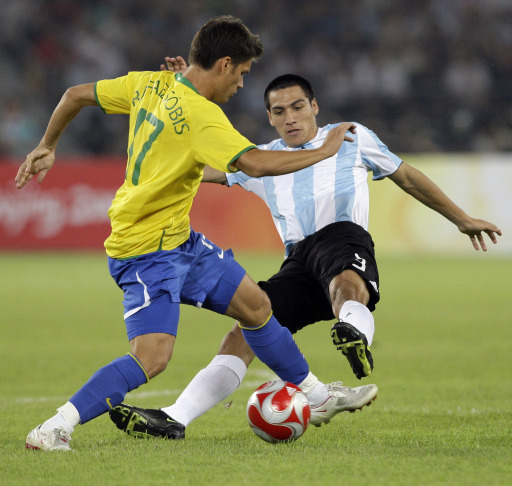
The 31-year-old is currently a free agent after leaving Universidad de Chile, which followed various stints to Europe. A return to Boca Juniors for a loan spell in 2015 had brought the only major titles of his career as a Carlos Tevez-led side raced to a league and cup double.
Monzon never really made many waves after the Olympics but had a respectable spell in France with Nice before failing to make the grade at Lyon or Brazilian club Fluminense.
A return to form in Italy with Catania wasn’t enough to reignite an international career that brought just seven senior caps.
MF: Javier Mascherano
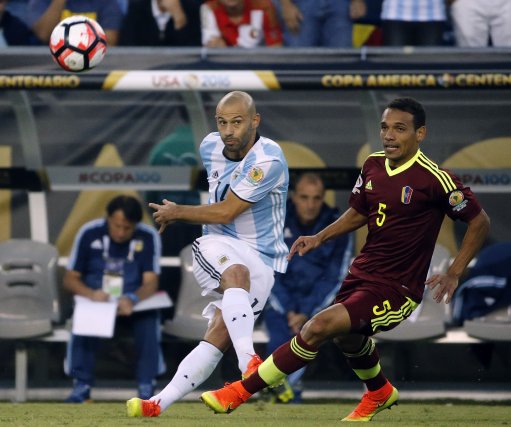
Then a midfielder, Mascherano was later converted into a centre-back at Barcelona with great success in the latter stages of his career. While he didn't lift any trophies at Liverpool, who he represented from 2007-2010, the 34-year-old made up for that with 12 major honours during his time in Catalonia – including two Champions League titles.
After sporadic playing time in his first season at the Camp Nou, Mascherano started more regularly a year later at centre-back as the ageing Carles Puyol began taking a backseat. For six seasons thereafter he was an essential part of a highly successful Barça team until leaving for Chinese Super League side Hebei China Fortune. There, it took him just nine games to score his first goal – after 330 to do the same for Barcelona.
Mascherano was captain of his country under Diego Maradona in November 2008, just months after that Olympic triumph. He maintained that role for three years until Alejandro Sabella gave the captaincy to Lionel Messi.
Though his time is surely coming to an end now, Mascherano held on to a starting spot at the 2018 World Cup and has overtaken Javier Zanetti as the most-capped Argentine player of all time.
MF: Fernando Gago
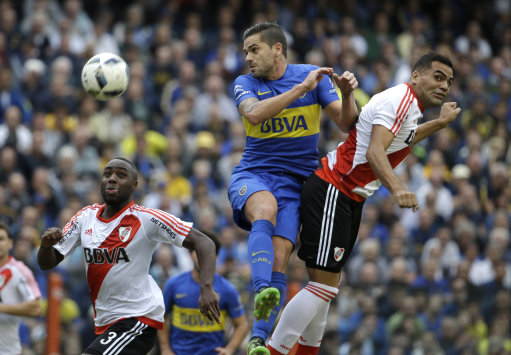
Tipped for stardom after winning the 2005 FIFA World Youth Championship, Gago was already a regular starter at Real Madrid when he helped Argentina to the gold medal in Beijing. He was also in the Argentina squad that lost to Germany in the 2014 World Cup final, and came on in the 86th minute of that match to play extra time.
After five seasons at Madrid, and falling down the pecking order under Jose Mourinho in the 2010/11 season, the central midfielder went on a season-long loan to Roma. That was followed by a move back to La Liga in July 2012, this time with Valencia, but that only lasted a few months before Gago was on the move again, on loan to Velez Sarsfield in Argentina.
In July 2013, Gago returned to Boca Juniors – the club where he first played football – but has been plagued by injuries and never made more than 16 league appearances in a campaign since then.
MF: Juan Riquelme
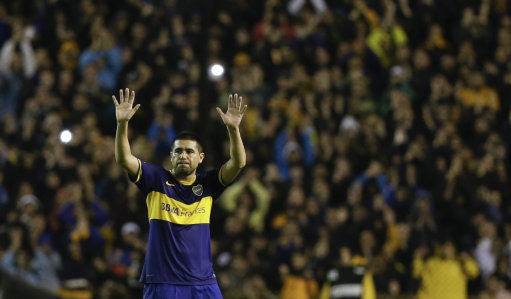
Riquelme was included as one of three over-age players in 2008 – he was 30 at that point of his career – and featured prominently as expected in China, playing in all but one game and netting a penalty in the 3-0 semi-final win over rivals Brazil. Considering he’d retired from international football altogether in 2006 due to his mother’s ill health, it was a particularly satisfying achievement in Albiceleste colours for a player so revered in his home nation and beyond.
He jacked in Argentina commitments for good in 2009 after a fall-out with Diego Maradona (a shock to us, as well), and when he finally retired from football in January 2015, he did so to worldwide fanfare. “He was the second inventor of football – the first were the English over 100 years ago,” wrote journalist Horacio Pagani in tribute. He was not alone.
After a disappointing spell under Louis van Gaal at Barcelona, Riquelme lifted a good if unspectacular Villarreal team to new heights, ending with the crescendo of a Champions League semi-final in 2006. Things were never the same again at El Madrigal, though, and he returned to Boca Juniors where it all began, initially on loan. Six-and-a-half years and two Apertura titles later, he finally left his first club for a sojourn at Argentinos Juniors.
These days he’s really not up to much at all, enjoying his retirement in peace in Buenos Aires – save for some sparse media appearances criticising Boca’s current regime, that is.
MF: Angel Di Maria
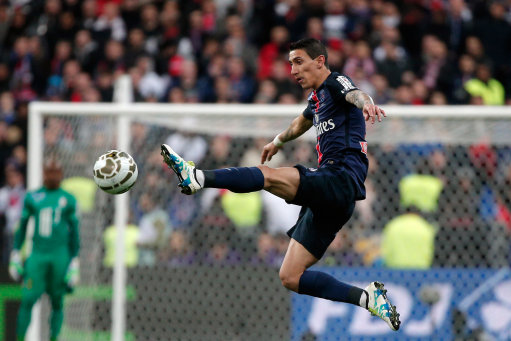
The former Benfica, Real Madrid and Manchester United winger may be a household name now, but back in 2008 he was one of the lesser-known faces in Argentina’s Olympics squad.
Scoring a stunning winner in the gold medal match against Nigeria (see below) certainly announced his arrival, though. Since then he's won a major trophy with his club side in every season – barring his ill-fated stay in Manchester in 2014/15.
The 30-year-old, who started his professional career with Argentine outfit Rosario Central in 2005, has made 135 appearances for PSG now and remains an important member of Thomas Tuchel's first-team squad.
Fortunes haven’t been as rosy with the Albiceleste, though; Di Maria and his team-mates have lost the final of their last three tournaments (2010 World Cup, 2015 and 2016 Copa America), and flopped at World Cup 2018 in Russia.
FW: Lionel Messi
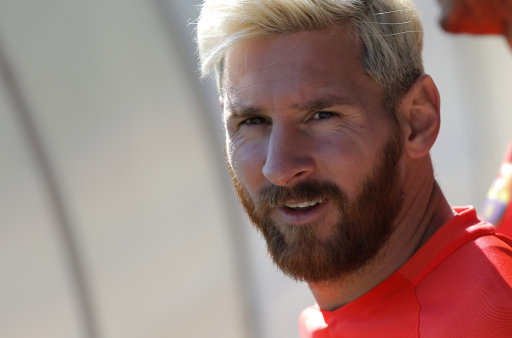
Messi was already a star for Barcelona when he arrived in Beijing; a regular starter for his country and a runner-up to FIFA World Player of the Year Kaka. Today, he's widely considered the best player in the world – and perhaps of all time.
The boy once diagnosed with growth hormone deficiency has done good: a five-time Ballon d'Or winner since 2009, Barcelona's record goalscorer, and a multiple winner of every major trophy on offer at the Camp Nou.
An inability to single-handedly inspire Argentina to a trophy, though, has often been used as a rod to beat him with. The Albiceleste reached the 2014 World Cup Final and three Copa America finals (2007, 2015 and 2016) but fell short each time, prompting Messi to shock the world with his international retirement (a decision he reversed barely two months later). Sadly for him, 2018 didn't go any better.
FW: Sergio Aguero
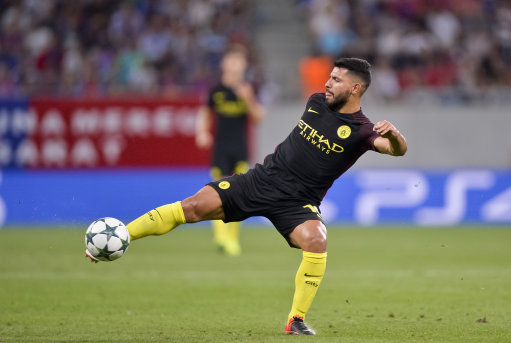
Widely recognised among the top forwards in world football, 'Kun' Aguero is one of the true success stories from the class of 2008. Since joining Manchester City in 2011 he has become their all-time top goalscorer and helped fire them to three Premier League titles, establishing himself as England's most lethal marksman with enviable consistency.
Aguero was Messi's room-mate in Beijing and the two have remained best friends ever since. They have also clicked on the field for Argentina, but an untimely injury to Aguero meant the 2014 World Cup saw the duo at below their best. Other fitness issues have meant that Aguero has been unable to show his best at major international competitions – cruel, for one of the best strikers football has ever seen.
Jose Sosa – 79’ substitute for Aguero
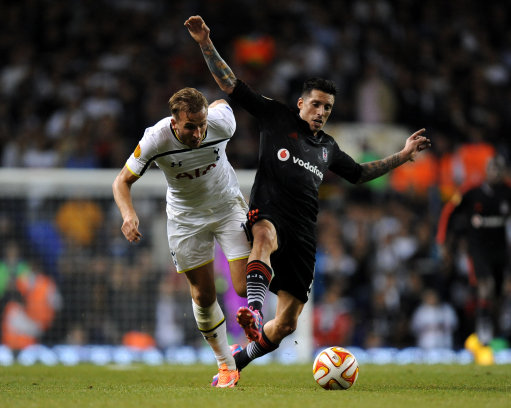
Sosa endured an unsettled few seasons following his Olympic gold, representing five clubs in the ensuing six years. He returned to his homeland with Estudiantes for a year, then went to Napoli before popping up in Ukraine with Metalist Kharkiv.
There he was instrumental to the club’s good performances in the 2011/12 season, and earned the captain’s armband ahead of the next campaign. Sosa's encouraging performances, coupled with growing Metalist debts, resulted in a loan to Atletico Madrid, where he finished with a Liga medal and featured in their 2014 Champions League Final defeat.
A permanent transfer didn't materialise, however, so Sosa joined Besiktas instead. In his second season he won a second domestic title in three years as the Black Eagles soared to the top of Turkey for the first time in seven seasons. That earned him a move to Milan ahead of the 2016/17 season, kicking off a two-year spell that eventually ended with a 2018 switch to Trabzonspor.
Ever Banega – 88’ substitute for Di Maria
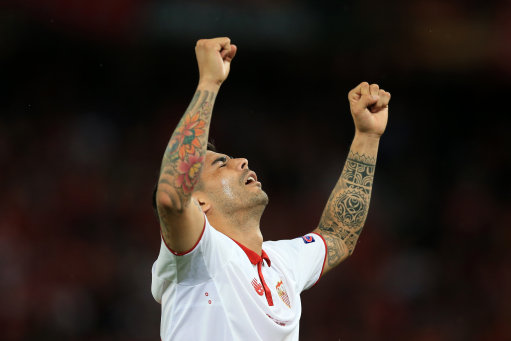
The mercurial Banega is back at Sevilla these days, having briefly swapped the former Europa League winners for Inter Milan in the 2016/17 campaign.
It’s no wonder they wanted him back after he starred in their march to European success once again in 2016, and was man of the match in the 2015 Europa League Final against Dnipro.
The 30-year-old former Boca Juniors star has racked up 65 caps for Argentina, most recently at the 2018 World Cup, having featured for the Albiceleste sporadically during a career that has also featured stints at Valencia, Atletico Madrid and Newell’s Old Boys.
Banega failed to make the 2010 and 2014 Argentina World Cup squads but had served his country well at Copa America level before 2018, making the cut in 2011 and finishing as a runner-up in the 2015 and 2016 editions.
Ezequiel Lavezzi – 93’ substitute for Messi
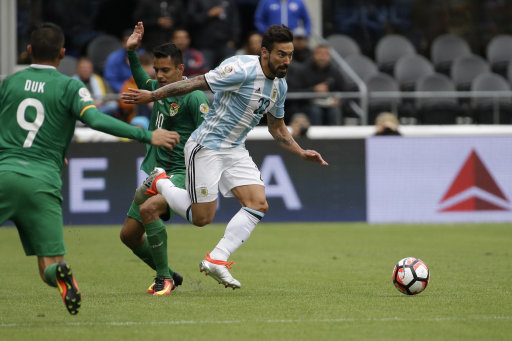
After the Olympics, ‘El Pocho’ spent four more years in Italy with Napoli, establishing himself as a fan favourite. Although he only scored in double figures twice in his five years there, Lavezzi often popped up with crucial goals and conjured up numerous assists. He also lifted the Italian Cup in his final season before departing for PSG in summer 2012.
In France, the diminutive forward continued thriving. Together with Zlatan Ibrahimovic, they formed a fearsome attack that proved to be unstoppable as PSG lifted four straight league titles and five domestic cups.
In February 2016, though, Lavezzi moved to the Chinese Super League with Hebei China Fortune – reportedly earning him £10m per season. He claimed to have spurned the advances of Chelsea, Manchester United and Inter Milan.
Despite his successful club career, Lavezzi never featured as frequently as he would have liked with Argentina, given the weight of competition. He's amassed 51 caps for his country, but hasn't featured for them since the 2016 Copa America semi-finals.
